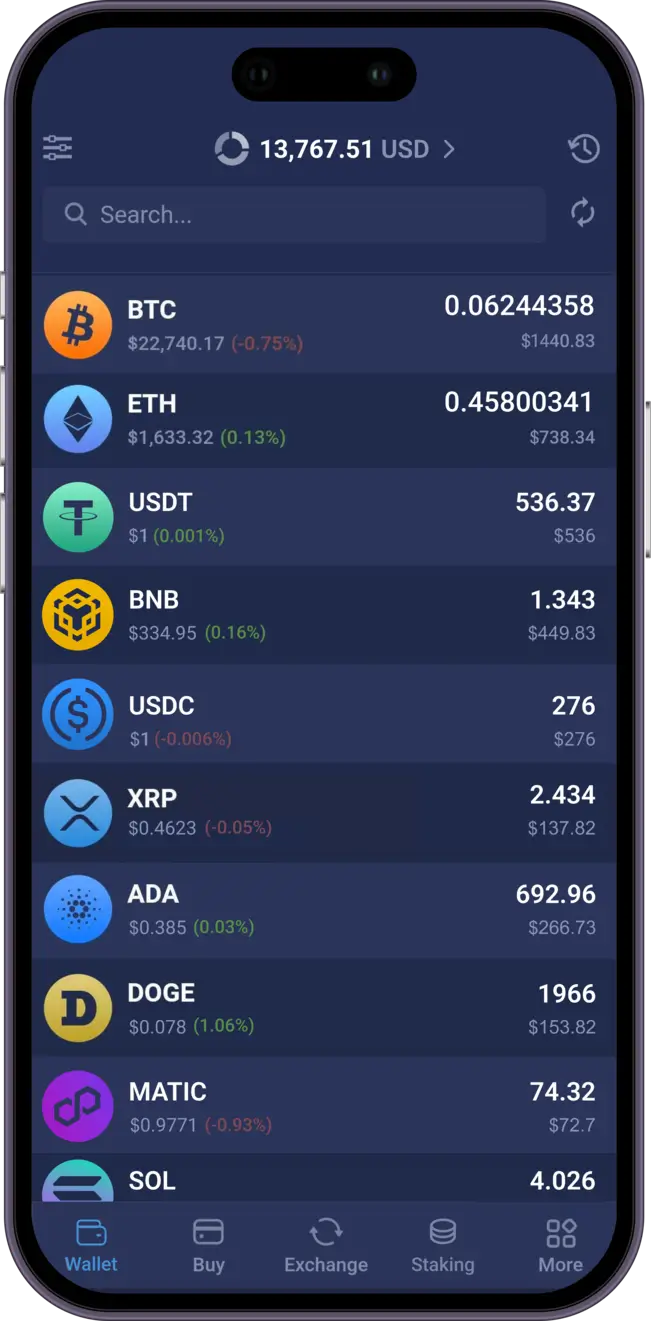Litecoin (LTC: Litecoin, is a digital currency that is decentralized, and is a variant of the Bitcoin protocol. However, it has several key differences including a faster block generation and a different hashing algorithm.
Monero (XMR): Monero is a cryptocurrency focused on privacy that utilizes a variety of features like stealth addresses and ring-signatures to improve the privacy and security of transactions.
TRON(TRX): TRON is both a cryptocurrency and a blockchain platform that can support decentralized applications as well as content sharing. TRON is aiming to create an international digital entertainment network with blockchain and peer–to-peer (P2P), technology. Check out the top bitcoin wallet app for more advice.

Differences:
Bitcoin is primarily a distributed digital currency. Ethereum is a platform that allows users to make custom tokens.
Monero is focused on privacy and security, while TRON seeks to develop a global digital content entertainment system.
TRON utilizes a Delegated Proof of Stake(DPoS) consensus mechanism. Other cryptocurrency utilize a Proof of Work/Proof of Stakes (PoW) however.
10 Things You Need To Learn About A Usdt The Wallet
You're looking for a wallet based on USDT with key features like security as well as options for backup and recovery, and the ease of use.
Security: Keep your USDT safe in a wallet. You might also consider two-factor authentication. Keep your private key safe.
Private and public keys Like other cryptocurrency wallets, USDT wallets also have public and private key. The public key is used for receiving USDT. The private key is utilized to access and sending USDT.
Receiving USDT: To receive USDT, share your public key with the sender.
Send USDT Enter the public number of the recipient along with the amount that you wish to send.
Transactions Transactions: Transactions which are made by using an USDT wallet will be recorded to the blockchain.
Pegged value USDT = USDT is fixed at the US dollars value. This means USDT's price is stable in relation to the dollar.
Conversion: USDT is possible to convert into other currencies or fiat currency using exchanges.
Integration: USDT wallets can integrate with financial services or exchanges to facilitate seamless transfer of funds. Follow the top rated ltc wallet app for site info.

10 Things You Should Know About An Etherium Card The Wallet
The purpose of an Ethereum wallet is a type of software application used to store, transfer and exchange Ether (ETH), the cryptocurrency of the Ethereum network.Types: There are a variety of Ethereum wallets, such as hardware wallets, software wallets, as well as paper wallets.
The most important features are: You want an Ethereum wallet that provides security (e.g. easy use encryption, backups, encryption and options for recovery.
Safety: Make sure that your ETH is secure in a wallet. Consider enabling two-factor authentication. Secure your private keys and safe.
Keys for private and public. An Ethereum account contains the public key, which is used to transfer ETH in addition to a private, which is used for accessing and transferring ETH.
Receiving ETH Sharing your private secret key with the sender to earn the ETH.
Sending Ethereum: Type the recipient's public keys and the amount you want to send.
Transactions: All transactions made with an Ethereum wallet will be registered on the Ethereum Blockchain, which is a public ledger that tracks all ETH transactions.
Gas charges: Ethereum transactions require gas which is a cost paid in ETH that is processed by the network. Consider the gas costs when making transactions.
Contract support Support for contracts: Certain Ethereum wallets can be used to facilitate the management, creation and implementation of smart contracts. They permit self-executing agreements that are written in code. View the best trusteeglobal.eu/usdt-wallet/ for website tips.
10 What You Need To Know About A Monero And Xmr Apps For Wallets
Purpose: A Monero (XMR) wallet is a software application used to store, send, and receive Monero, a privacy-focused cryptocurrency.Types: There are different types of Monero wallets, including software wallets, hardware wallets, and paper wallets.
It is important to look for the most essential features of a Monero wallet, including security and backup options. You will find encryption, backup and recovery options as well as an intuitive interface.
Security: Securely save your XMR and enable two-factor authentication. Make sure you keep your private key.
Private and public keys Keys for public and private keys Monero wallet has an address for public use, that is used to receive XMR, and an private view key which is used to monitor transactions that are in the pipeline as well as a private spend key that is used to access and sending XMR.
Receiving XMR
Send XMR to an addressee Enter the address of the recipient as well as the quantity of XMR you'd like to send.
Transactions
Privacy: Monero provides privacy by concealing the source, amount, and destination of transactions through anonymous addresses and ring signatures.
Scalability: Monero was designed to scale, which allows for the growth of transactions as demand increases. Take a look at the recommended usdt wallet for more examples.

What Is The Difference Between A Usdt Erc-20 Wallet And A Tether Erc-20 Wallet?
USDT (Tether) is also known as a stablecoin is a stablecoin that has its value dependent on the US currency. It is anticipated to remain steady in relation to the US dollar. USDT (Tether) can be found on multiple blockchain networks, such as Ethereum (ERC-20), Omni and various other Bitcoin-based networks. A USDT ERC-20 wallet holds USDT tokens that are specifically designed on Ethereum by using the ERC-20 standards. Tether ERC-20 wallets are similar. They contain Tether (USDT), tokens created on Ethereum with the ERC-20 standard.
The key difference between these two types of wallets is that the names used to describe the stablecoin USDT ERC-20 and Tether ERC-20. Both refer to a single underlying asset that is a stablecoin, based on the US dollar and is available on the Ethereum blockchain through the ERC-20 standard.